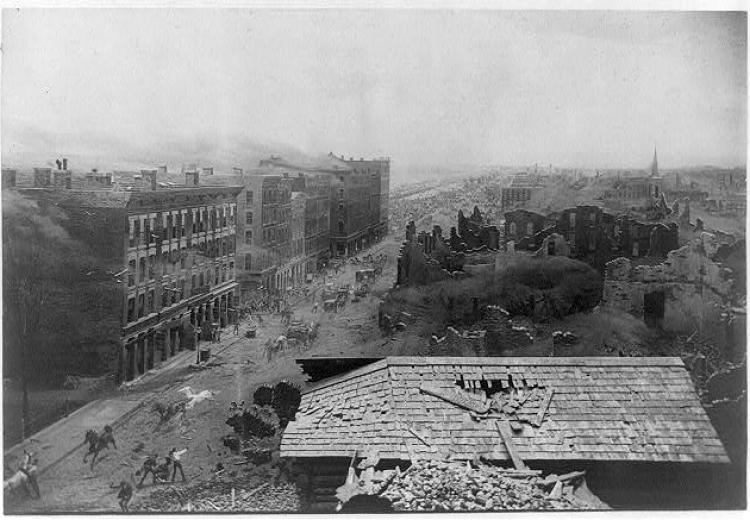Evaluating Eyewitness Reports Activity 2

The Chicago Fire, 1871
Read the following eyewitness accounts of the Great Chicago Fire of 1871 from the website, The Great Chicago Fire and the Web of Memory:
- The narrative of Bessie Bradwell, written in 1926
- The narrative of Mary Kehoe, written in 1942.
Compare these personal recollections of the fire with the newspaper reports written within days of the event.
- The Tribune Reports to Chicago on Its Own Destruction
- Article in the Chicago Evening Post on October 17, 1871
- You can also take a look at this map of the fire.
Use the Written Document Analysis Worksheet from the National Archives Digital Classroom website to begin your analysis of these reports of the Great Chicago Fire.
- Are there similarities in the selection of episodes? In vocabulary?
- How do these narratives differ from the news reports? You should focus on issues of scope, point of view, purpose, and the significance they draw from the event in their accounts.
Re-write a passage or incident from one of the personal narratives to show how one of the news reporters might have presented it.
Answer the following questions, being sure to provide examples of all the evidence you find within the narratives that answer these questions:
- What evidence is there that these eyewitness accounts are factually unreliable?
- Is there reason to consider them more reliable than the newspaper reports?
- How do these accounts seem "tinted" by memory?
- What indications that the writers have shaped their experiences into stories, introduced elements of plotting and characterization to organize and add meaning to the event?
- How do they compare with the news accounts in this respect?
- For what reason do you consider these memoirs more accurate as portrayals of the unvarnished facts, or not?
Now, think about how an historian might use these eyewitness narratives of the Chicago Fire.
- What kinds of historical evidence do they provide that is unavailable through the newspaper reports?
- To what extent can these personal views of the fire be combined into one account?
- How might the age of these witnesses, at the time of the fire and when they composed their memoirs, affect historical assessment of their accounts?
- How would a witness who was older at the time of the fire have noted different incidents, or expressed a different attitude toward this disaster?
- How would these witnesses have provided different reports if they had written their accounts while still teenagers?
